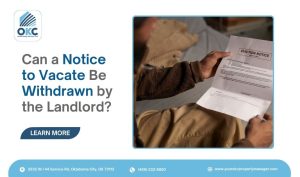You unlock your rental property only to find the locks changed, mail piling up, and some belongings left behind. You might think, ‘The tenant must have moved out, so I can take the place back.’ But here’s the catch: one wrong move without following the proper legal process can turn into an illegal eviction.
Over the past 15 years of managing rental properties and working with property owners, one thing has become clear: many illegal evictions don’t happen because landlords are cruel or careless. They happen because the landlord simply doesn’t know what counts as “illegal.” What seems like a quick solution can easily turn into an expensive lawsuit, a damaged reputation, and months of stress.
In this detailed guide, I’ll break down what is an illegal eviction, how it’s different from a lawful one, and why every landlord should understand the process before acting. I’ll go step-by-step through real examples, laws, and practical advice to help you stay compliant and confident.
What is an Illegal Eviction?
An illegal eviction (also called an unlawful eviction or wrongful eviction) happens when a landlord tries to remove a tenant without following the proper legal process. In simple terms, it means taking matters into your own hands instead of letting the court handle it.
Think of it this way: when you rent out a property, you’re not just giving someone a place to live, you’re entering into a legal agreement. That agreement gives both you and your tenant certain rights and responsibilities. You can’t just end that agreement overnight, even if the tenant hasn’t paid rent or broken the rules. The law requires you to follow a fair and structured eviction process, step by step.
When those steps are skipped or ignored, such as changing the locks, cutting off power, or removing a tenant’s belongings without a court order, it becomes a wrongful eviction.
Unlawful evictions are more common than they should be. Many landlords don’t fully understand eviction laws. A few common reasons include:
- Not knowing the correct legal eviction process
- Wanting to avoid the time and cost of going to court
- Losing patience with a difficult or non-paying tenant
Examples of wrongful eviction include:
- Changing or rekeying the locks without a court order
- Shutting off essential utilities (like water, electricity, or gas)
- Removing or disposing of a tenant’s personal belongings
- Blocking access to the property
- Harassing, threatening, or intimidating the tenant to leave
Distinction between Legal and Illegal Eviction
Understanding the difference between legal and illegal eviction is very important for a responsible landlord. Here is a quick comparison between legal vs illegal eviction.
| Aspect | Legal Eviction | Illegal Eviction |
| Process | The landlord goes through the court and follows the legal procedure | The landlord bypasses the court; self-help evictions |
| Authority | The court handles removal | Landlords act directly |
| Notice | Written and served according to the law | No notice or improper notice |
| Tenant Rights | Protected | Violated |
| Landlord Risk | Minimal if laws are followed | High- may face fines, lawsuits, and penalties |
| Outcome | Lawful recovery of property | Legal and financial trouble for the landlord |
If a tenant is forcefully evicted, it exposes you to penalties and fines. So, always follow a legal eviction that respects procedure, fairness, and the rule of law.
What are the types of illegal evictions?
1. Lock-outs (changing locks/ denying entry)
What it is: Landlord changes the locks or otherwise prevents a tenant from entering their home without a court order.
Why it’s illegal: Once a tenant lawfully occupies, they have a right of possession until a court says otherwise; only law enforcement (sheriff/constable) may carry out a physical removal after a court judgment.
Example: You serve a “pay or quit” notice, the tenant doesn’t move, so you hire a locksmith and put a new deadbolt on the door. That’s an unlawful lock-out.
2. Utility Shut-offs
What it is: Landlord turns off or arranges the disconnection of essential services to make the unit unlivable and pressure the tenant to leave.
Why it’s illegal: Removing heat, water, electricity, or other essential services can constitute constructive eviction, habitability violation, and is treated as a self-help eviction in many states. It can also create health and safety risks.
Example: Landlord stops paying the bill for electricity in a multi-unit building where the tenant relies on that service, or landlord physically disconnects water to force a move.
3. Removal or disposal of tenant belongings
What it is: Landlord removes a tenant’s furniture, boxes, or possessions from the unit (or throws them away) without a court order or following proper procedures.
Why it’s illegal: This is effectively depriving someone of personal property and can be both a civil and criminal violation, depending on the state.
Example: The tenant is briefly away, the landlord moves everything to the curb and changes the locks, assuming abandonment. The tenant returns and sues.
4. Harassment, threats, and intimidation
What it is: Any pattern of behavior intended to force a tenant to vacate; repeated threats, verbal abuse, excessive and unlawful entry, harassment by proxy (e.g., hiring people to scare tenants).
Why it’s illegal: Many landlord-tenant laws and housing codes treat harassment as an unlawful eviction tactic; it can also violate anti-retaliation and fair housing protections if motivated by protected characteristics or tenant complaints.
Example: Landlord repeatedly shows up unannounced at odd hours, shouts at tenants, threatens to remove belongings, or tells them they’ll be arrested unless they leave.
5. “Self-help” while an eviction case is pending
What it is: Landlord files for eviction but then takes action (locking out tenant, removing property) before the court issues a possession order or before law enforcement enforces it.
Why it’s illegal: Filing a case doesn’t give you the right to act; only a final court order and proper enforcement do. Premature self-help can convert a lawful action into an illegal one.
Example: You file an unlawful detainer, but while waiting for the sheriff to serve the writ, you change the locks. Even though you started court proceedings, you may still be liable.
What are the consequences of illegal eviction?
When a landlord does illegal tenant removal, whether by accident or frustration, the consequences can be severe. It’s not just about returning a tenant’s key or apologizing. Forceful eviction can unleash financial penalties, lawsuits, criminal charges, and long-term damage to your reputation as a landlord.
1. Financial Penalties
An Improper Eviction can be extremely expensive, even if the tenant was wrong. Courts often view such actions as violations of due process and tenant rights. Tenants can sue for actual losses caused by eviction, such as hotel bills, lost wages, and damaged property. In Oklahoma, the tenants can recover an amount equal to two months’ rental and twice their actual damage as per Justia Law.
2. Legal Consequences and Lawsuits
Unauthorized eviction doesn’t just violate housing codes; it can become a civil rights issue or a case.
a) Wrongful Eviction Lawsuits
Tenants can file a lawsuit for wrongful eviction, arguing that their right to possession was violated.
If they win, they might receive:
- Compensation for emotional distress
- Punitive damages (to punish the landlord)
- Legal costs and attorney’s fees
b) Breach of Lease and Habitability Claims
If the landlord forced a tenant out or made the property unlivable in Oklahoma, courts may find a breach of the implied warranty of habitability or breach of contract both of which strengthen the tenant’s case.
c) Civil Rights and Fair Housing Violations
If the eviction was motivated by discrimination or retaliation, it can fall under federal housing laws, such as the Fair Housing Act. That means the U.S. Department of Housing and Urban Development (HUD) or a state human rights agency can get involved turning a private dispute into a government investigation.
3. Criminal Liability
While not all illegal evictions lead to criminal charges, many states treat self-help eviction as a serious offence.
That means a landlord could technically be arrested or fined for violating housing laws.
4. Damage to Reputation and Rental Business
Nowadays, everything is public. Tenant complaints and even online reviews can permanently affect your image as a landlord.
a) Negative Online Reviews
Websites like Yelp, Google often feature tenant reviews. One accusation of illegal eviction can discourage quality renters or investors from working with you.
b) Difficulty finding future tenants
Tenants might spread the news of forceful eviction on social media or local forums. Due to this reason, you might face longer vacancies and lower trust from future tenants.
c) Loss of Professional Credibility
For property managers and real estate investors, reputation is currency. A single unlawful eviction can make insurance providers increase premiums or make partners reluctant to collaborate.
How Landlords Can Avoid Illegal Evictions
With over 19,000 eviction cases filed in Oklahoma in 2025 alone (as reported by the Civil Court Data Initiative), it’s clear that eviction disputes remain a regular and often complicated part of the rental business. Across the country, thousands of similar cases highlight one consistent truth: it’s not whether landlords will face an eviction issue, but how they handle it that truly matters.
Avoiding an illegal eviction isn’t just about protecting tenants’ rights; it’s about safeguarding your investment, reputation, and legal standing. The good news? Most illegal evictions happen not out of bad intent, but out of impatience, confusion, or lack of knowledge. By following a few simple, well-documented steps, landlords can stay compliant, reduce risk, and keep their rental business running smoothly.
1. Always start with a proper written notice
The first and most critical steps in an eviction process are giving the correct written notice with the right reason, right format, and right time frame. Every jurisdiction has its own notice period. Check your state or city’s landlord-tenant laws to confirm. For Oklahoma, you can use resources like the Oklahoma Eviction Process for reliable references.
2. Never Attempt a “Self-Help” Eviction
If you take one golden rule from this entire article, let it be this:
Never change the locks, shut off utilities, remove belongings, or physically pressure a tenant to leave; no matter the situation.
Even if your tenant is months behind on rent or violating every clause in the lease, you must let the court handle possession.
Only a judge can issue an eviction order, and only an authorized officer can enforce it. Trying to do it yourself (called self-help eviction) is one of the quickest ways to turn a simple dispute into an illegal removal case, complete with penalties and bad press.
3. File for Eviction Through the Court
Once your notice period expires and the tenant hasn’t complied, the next step is filing a formal eviction case (often called an unlawful detainer or forcible entry and detainer action).
The process usually involves:
- Filing the appropriate forms at your local housing or civil court.
- Paying a small filing fee.
- Serving a court summons and complaint to the tenant.
- Waiting for a scheduled hearing date.
During the hearing, both sides present evidence, and the judge makes a ruling. If the court grants possession, you’ll receive a Writ of Possession, which authorizes law enforcement to remove the tenant if necessary.
4. Understand Retaliation and Discrimination Laws
Even if your reasons feel justified, the law examines why you’re evicting.
It’s illegal to evict a tenant for:
- Reporting code violations or unsafe conditions.
- Joining a tenants’ rights group.
- Requesting necessary repairs.
- Belonging to a protected class under the Fair Housing Act (such as race, religion, disability, or family status).
If you’re unsure whether your reasons are valid, consult a real estate attorney or local housing authority before taking action.
Final Thoughts on Unlawful Eviction
Illegal evictions can cost landlords far more than they realize, not just in legal fees, but in time, stress, and reputation. The safest and smartest way to protect your investment is to follow the proper legal process, serve valid notices, and document every step. With thousands of eviction cases filed each year, knowing the law isn’t optional, it’s part of being a responsible, successful property owner.
If you’d rather focus on growing your rental business than worrying about legal missteps, OKC Home Realty Services can help. Their experienced property management team handles everything from tenant screening to rent collection, so you can manage your properties confidently and stay fully compliant. Get in touch today to protect your rentals and keep your business running smoothly.
FAQs on Unauthorized Tenant Eviction
Can you go to jail for illegal eviction?
Yes, a landlord can go to jail for illegal eviction in some cases. While most illegal evictions result in civil penalties like fines or damages, certain actions, such as forcibly removing tenants, changing locks, or shutting off utilities, can be treated as criminal offenses in many states. If a landlord uses threats, harassment, or physical force to make a tenant leave, they could face misdemeanor or even felony charges, leading to fines and possible jail time. Always follow court procedures to avoid criminal liability.
What is the penalty for illegal eviction?
The penalty for illegal eviction varies by state, but it can include hefty fines, payment of the tenant’s damages, attorney fees, and sometimes punitive damages. Courts may also require the landlord to let the tenant move back in or compensate them for lost belongings and emotional distress.
Can a landlord evict without notice?
No, a landlord cannot legally evict a tenant without proper notice. Every state requires landlords to give a written notice before filing for eviction, whether it’s for nonpayment of rent, lease violations, or ending a tenancy.

Author
Scott Nachatilo is an investor, property manager and owner of OKC Home Realty Services – one of the best property management companies in Oklahoma City. His mission is to help landlords and real estate investors to manage their property in Oklahoma.
 (
(









